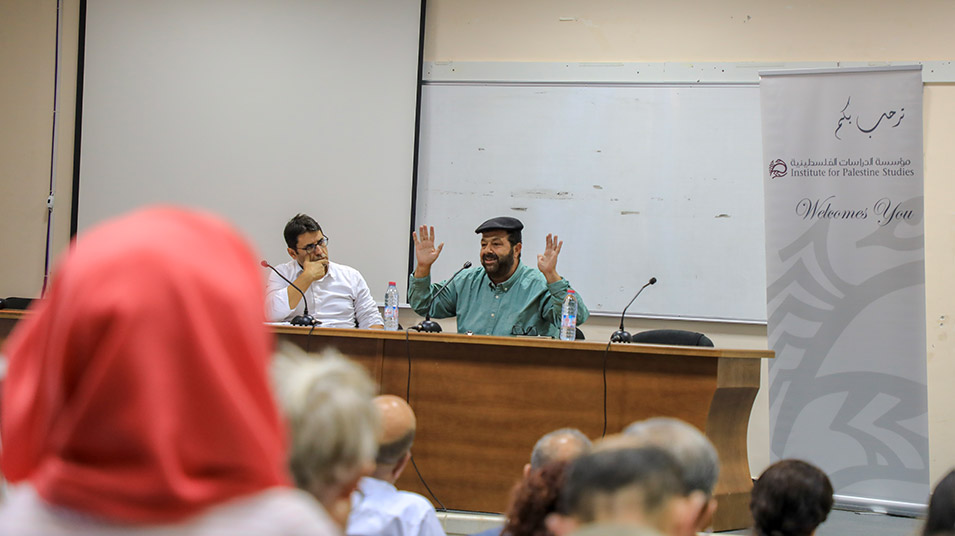Legal researchers, students dissect the Nation-State Law in Israeli Studies symposium
Legal researchers, experts, scholars, and students discussed the newly-adopted Israeli law, the Basic Law: Israel as the Nation-State of the Jewish People, in a symposium led by Hasan Jabareen, the founder and general director of Adalah—The Legal Center for Arab Minority Rights in Israel, on Monday, September 17, 2018.
During symposium, which was chaired by Dr. Munir Fakher Eldin, director of the Master’s Program in Israeli Studies, Jabareen reviewed the series of events and legal proceedings that led to the adoption of the law and its effects on Palestinians living inside the Green Line, in the West Bank, and in the Gaza Strip, in addition to Palestinians who were forcibly displaced in the 1948 Nakba.
“Ever since its inception, Israel has been utilizing laws to give a cloak of legitimacy to its actions and practices against Palestinians,” said Jabareen, who gave two examples: The Law of Return, which grants Jews the right to immigrate to Israel and gain citizenship, and the Absentee Property Law, which allows Israelis to take control of Palestinian property.
Jabareen noted that the Israeli legislative apparatus drafts martial and legal laws such that they appear to be non-discriminatory, but the executive branch of the government enacts these laws in a fashion that is biased against Palestinians. He also traced the roots of the new law to the debate about the meaning of earlier legislation that stipulates that Israel is to be “Jewish and democratic.”
The Basic Law: Israel as the Nation-State of the Jewish People
“While the Nation-State Bill has generated a lot of controversy, the truth remains that the practices that it codifies into the law have been in effect for a long time,” commented Jabareen.
While acknowledging that, Jabareen observed that the Nation-State Bill will allow individuals or groups to be more accepting of such practices and provide encouragement for increased settlement building in the West Bank. “The first article of the law stipulates that Israel is the historical land of the Jewish people, and many people would interpret that as a sign to continue with settlement plans, and undermine the two-state solution,” he said.
Jabareen highlighted the law’s fourth article - “Language” - which demotes Arabic to a “special status.” He also drew attention to the fact that the law encourages the Judaization of Jerusalem under the pretense of protecting Jewish culture and identity.
Jabareen called for action on the international level, first by seeking a UN General Assembly resolution condemning the law as a racially-discriminatory law, in order to be able to take further steps using international law.
Following Jabareen’s exploration of the law and its effects, the attending researchers, scholars, and students analyzed the Basic Law and gave their own interpretations of its clauses.







